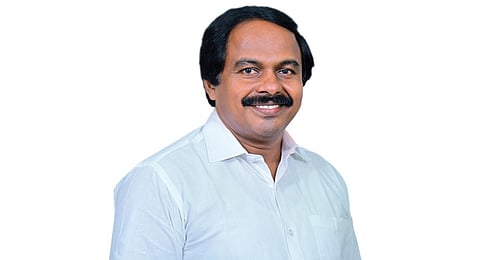It’s time for a sustainable rethink on road infrastructure
Mining mountains in the name of development needs a serious rethink. Large-scale extraction of rough stone, gravel, m-sand, and p-sand for infrastructure projects is leading to a serious environmental crisis in India. Destroying natural landscapes disrupts the hydrological cycle, weathering patterns, groundwater levels, greenery, and biodiversity.
Tamil Nadu alone has over 2,000 stone quarries, producing around 4 lakh tonnes of m-sand in addition to other materials daily. Kanniyakumari district administration states nearly 50,000 tonnes of quarry stones are transported to Kerala each day via Kanniyakumari district. This scale of extraction is bound to hurt the environment.
It’s time to rethink India’s infrastructure strategy and policy. Roads need to be rebuilt every five years. This should make us look at road development through a different lens.
Roads are vital for progress. India has the world’s second-largest road network with a staggering 66.71 lakh km length. Tamil Nadu alone has 2.7 lakh km. To build just 1 km of asphalt road with a width of 10 metres, 2,000 tonnes of natural resources are needed.
In 2023-24, Tamil Nadu Highways department allocated Rs 6,033 crore to build 3,078.2 km of roads, averaging Rs 1.9 crore per km. This means about 61.5 lakh tonnes of stone will be used. The worst part? These roads last only for five years.
Viable alternative
Concrete roads present a viable alternative with multiple advantages. While the initial cost is higher, they save resources over time. For instance, an asphalt road (7 metres wide, 1 km long) costs Rs 95 lakh and lasts 5 years. A concrete road of the same dimension costs Rs 2.15 crore but lasts up to 60 years with little maintenance. Concrete also reflects heat, helping reduce the urban heat island effect, making cities cooler. It’s also more recyclable than asphalt, reducing waste.
MIT’s Concrete Sustainability Hub reports concrete roads save up to 3% fuel due to lower rolling resistance. They last 30 - 50 years, need less maintenance, perform better in all climates, and reduce pollution and operational costs. In India, 3% fuel a day is equivalent 20,000+ metric tonnes of fuel. This fuel saving also means less pollution and less operating costs.
Toll fees for road maintenance
In 2023-24, NHAI collected Rs 55,882.12 crore across India, with Rs 4,221 crore from Tamil Nadu alone. If concrete roads are adopted more widely, maintenance costs would drop, reducing the need for such high toll collections and saving taxpayer money.
Addressing challenges
Concrete roads do face challenges: Higher upfront cost, longer curing time, surface noise, and slower construction. But there are solutions. Rapid hardening cement can reduce curing time from 28 days to 7. Precast slabs made offsite can speed up construction.
For road safety issues, grooved or brushed surfaces improve traction, reducing the risk of skidding, especially in wet conditions. To tackle noise concerns, diamond grinding creates a smoother, quieter surface while maintaining skid resistance.
Future of road construction
Emerging technologies like 3D printing of roads and new concrete compositions could significantly reduce costs and environmental impacts.
Self-healing concrete can fix its own cracks. Smart concrete with built-in sensors can warn about wear and tear.
New research is also working on textured concrete that’s as smooth and comfortable as asphalt, combining the best of both worlds.
Supporting global goals
Choosing concrete roads supports SDG 9 (Industry and Infrastructure), SDG 11 (Sustainable Cities), and SDG 13 (Climate Action). India must invest in innovative technologies and adopt a long-term vision for road construction, aiming for 100-year durability and minimal environmental impact.
Prioritise life over lifestyle, value the Earth above infrastructure, and strive for balance to ensure sustainability.
Roads vital
Roads are vital for progress. India has the world’s second-largest road network with a staggering 66.71 lakh km length. Tamil Nadu alone has 2.7 lakh km. To build just 1 km of asphalt road with a width of 10 metres, 2,000 tonnes of natural resources are needed
T Mano Thangaraj
(The author is DMK MLA from Padmanabhapuram constituency and former state minister for IT & DS and Milk and Dairy Development)

